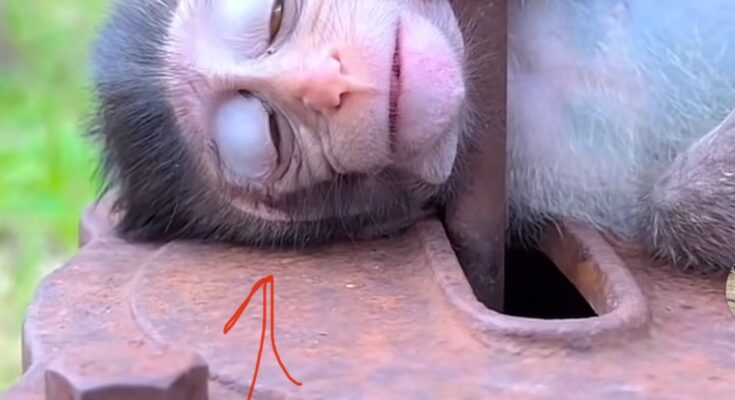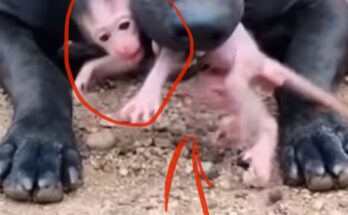In a disturbing incident that recently came to light, a baby monkey was found tied to a metal rod for several hours, unable to move freely or seek comfort. The footage, which surfaced online and quickly drew public outrage, highlights a growing concern over the mistreatment of animals — particularly primates — in both public and private spaces.
This young monkey, barely old enough to navigate its environment independently, was reportedly restrained using a tight cord fastened to a rigid metal rod. The animal was left exposed to the elements, unable to access food, water, or shelter. Witnesses reported hearing the monkey’s distress calls, but by the time help arrived, it had already endured hours of unnecessary suffering.
While the details surrounding the individuals responsible remain under investigation, the event has sparked serious conversations about animal rights, legal accountability, and the cultural normalization of cruelty toward wildlife in certain regions. Unfortunately, this isn’t an isolated case. Baby monkeys are often taken from their mothers at a young age, either for the illegal pet trade, street performances, or online entertainment videos that mask abuse behind a façade of cuteness.
The psychological and physical toll on animals in these conditions is devastating. Primates are highly intelligent, social creatures that require mental stimulation, companionship, and freedom to thrive. Restraining them — especially for prolonged periods — leads not only to emotional trauma but also long-term physical harm, including developmental issues, muscle atrophy, and chronic stress.
Animal welfare activists and organizations have been quick to condemn the act, calling for stricter enforcement of animal protection laws. Many are urging governments to revisit their wildlife conservation policies, demanding tougher penalties for abuse and illegal captivity. Social media platforms, too, are being asked to better moderate content that features animals in potentially exploitative situations.
This incident serves as a grim reminder that awareness alone is not enough. There is a pressing need for education, policy reform, and public participation in ensuring animal safety. People must be encouraged to report animal cruelty whenever they witness it and support organizations working to rescue and rehabilitate abused animals.
Thankfully, in this particular case, the baby monkey was rescued and taken to a nearby wildlife sanctuary, where it is now receiving medical attention and psychological care. Experts hope that with proper rehabilitation, the young primate can be reintegrated into a more natural and supportive environment.
At its core, this incident is not just about one baby monkey — it’s about how we, as a society, value the lives of the voiceless. As we continue to share spaces with wildlife, it’s vital we choose compassion over control, empathy over exploitation.



